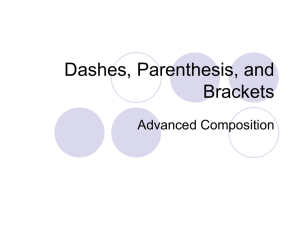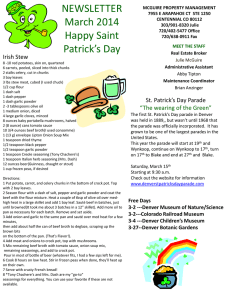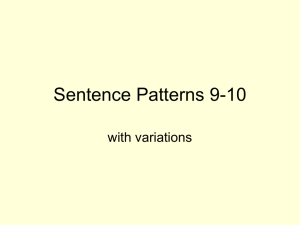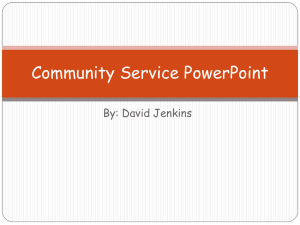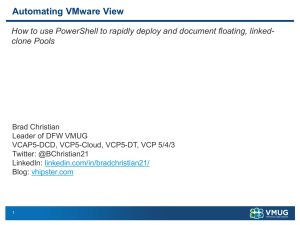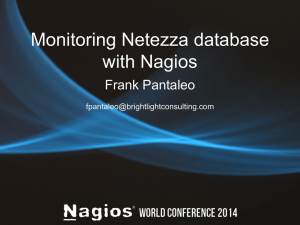PPTX
advertisement
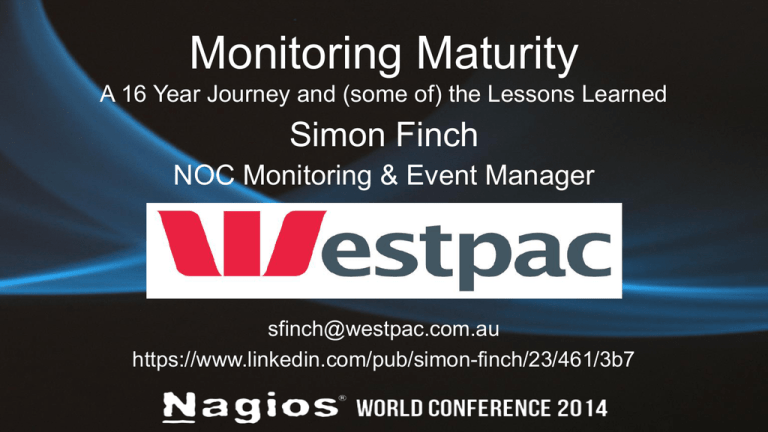
Monitoring Maturity A 16 Year Journey and (some of) the Lessons Learned Simon Finch NOC Monitoring & Event Manager sfinch@westpac.com.au https://www.linkedin.com/pub/simon-finch/23/461/3b7 Westpac Stats • Australia’s first and oldest bank (1817) • World’s Ninth largest bank • Global100 world’s most sustainable company (2014) • World’s most sustainable bank 2014 (Dow Jones Sustainability Indices) • Named as one of the World's Most Ethical Companies from 2008 - 2013 by the Ethisphere Institute Westpac Stats • 12 Million Customers • 570,000 Share Holders • 37,000 Employee’s • 1300 Australian points of representation • Offices in London, New York, Hong Kong, Singapore, India, Shanghai, Beijing, New Zealand, Pacific Islands & Indonesia About This Presentation 1. 2. 3. 4. Monitoring Landscape NOC Dash Boards Service Desk Integration Mainframe Alerts via MQSI Part 1 Monitoring Landscape Monitoring Landscape • Westpac – multi branded • IT is both insourced & outsourced • Nagios used extensively throughout insourced brands (SGB, BSA, BoM) Time Line • 1998 - Vendor Framework Installed • 2004 - First Nagios used to fill gaps • 2006 - Nagios replaced proprietary monitoring framework The Result ? • Paradigm shift (power to the people) • Deeper monitoring penetration • Agents part of server build Monitoring Today • • • • • Critical Applications Branch Locations Wintel, Linux, Unix 4000 hosts 37000 services Part 2 Dash Boards NOC Dash Boards NOC Dash Boards • • • • • • Major App status at a glance Bright & colourful Simple & effective Drill down to application map Time stamped All done with NagVis Dash Board Evolution Early example Dash Board Evolution Then we tried Dash Board Evolution Today Dash Board Evolution VMware Dash Boards • • • • • VMware - interesting monitoring challenges Metrics from each ESX host are monitored Metrics are clustered to prevent false positives > 20% Failure shown as a warning > 40% Failure shown as critical Dash Board Drill Down VMware Dash Boards • • • • Top level status shows nothing is wrong VMware clusters have lots of redundancy Hover display shows some detail Although it looks simple, there are more than 150 metrics collected and clustered to build the status of each VMware ESX cluster. VMware Dash Boards VMware Dash Boards Drill down shows the details for the support teams. VMware Dash Boards Application Support • • • • Specific Custom Requirements Displayed on large monitors Used for day to day operational status Summary rolled up to the NOC Application Support Application Support Application Support NagVis & Livestatus • • • • NagVis is extremely flexible More so with Livestatus Use simple perl script to extract data Enhance dash boards anyway you want NagVis & Livestatus #!/usr/bin/perl -wT use CGI qw/:standard/; use Monitoring::Livestatus; my $q = new CGI; print $q->header(); $backend = $q->param( 'backend' ); $filtergrp = $q->param( 'hostGroup' ); $ml = Monitoring::Livestatus->new( server => ‘backend hostname:port' ); my $up = $ml->selectscalar_value("GET hosts\nFilter: host_groups >= $filtergrp\nStats: state = 0"); my $down = $ml->selectscalar_value("GET hosts\nFilter: host_groups >= $filtergrp\nStats: state = 1"); my $unknown = $ml->selectscalar_value("GET hosts\nFilter: host_groups >= $filtergrp\nStats: state = 2"); my $total = $up + $down + $unknown; print "$down\/$total<br>"; NagVis & Livestatus Summary • • • • Simple is effective Clear status summary Bold broad use of colour Details only for Specialists Part 3 Service Desk Integration Service Desk Integration Two tried and proven methods: 1. Direct to API 2. Event Management Service Desk Integration Direct to API Service Desk Integration Event Management Service Desk Integration • • • • • Notifications: email, sms, remedy Custom macro in top level templates Common script for host & Service Custom macro sent to notify script Email & sms easy to handle Service Desk Integration • Service desk ticket creation handled by sending event to BMC BEM. • Same method as email & SMS. • Different handler subroutine in notify script. Service Desk Integration • Nagios ContactGroup as ResolverGrp • Worked fine until department mergers changed ContactGroup names • Now using custom macro in top level templates What does that give us ? • Control of notification down to individual host & service level • Ability to set notification at template level and override at service / host level • Email / sms / tickets in any combination • Complete flexibility Summary • • • • API – more control API – much harder to do EvtMgmt – not as much control EvtMgmt – very simple to do Part 4 Mainframe Alerts Mainframe Alerts via MQSI • Why ? (you want to do what ????) • Why bother ? (That’s what Ops are for, aren't they ?) • How ? (it’s easier than it sounds) Mainframe Alerts - Why ? • Most of our distributed apps are back ended by mainframes • Mainframe hiccups cause apps to fail • Dash boards all stay a lovely shade of Green • MF vendor options outrageously expensive ($100k - $1M) Mainframe Alerts - How ? • Anybody who has legacy MF Apps also has MQSI (If not, why not ?) • SysProgs already logging errors • Setup MQSI channel from MF to Intel host • Agree on simple delimited message format • field1|field2|field3|field4|field5 …fieldN • SysProgs send error messages via MQSI Mainframe Alerts - How ? • Message arrives, MQSI auto runs custom script • Simple perl split on delimiter to recover fields. • Perl script then formats alert into any format you want and sends it to Nagios • NSCA, NDRP, SNMP, NagEventLog or what ever option you have available. Mainframe Alerts - How ? Mainframe Alerts - Result ? • • • • MF App events now in Nagios Map MF events to appropriate Apps Dashboards show correct status Happy NOC Manager Summary • MF’s are still with us. • Process critical transactions. • Status not complete without MF app detail. Questions? Thanks for coming Simon Finch sfinch@westpac.com.au https://www.linkedin.com/pub/simon-finch/23/461/3b7
